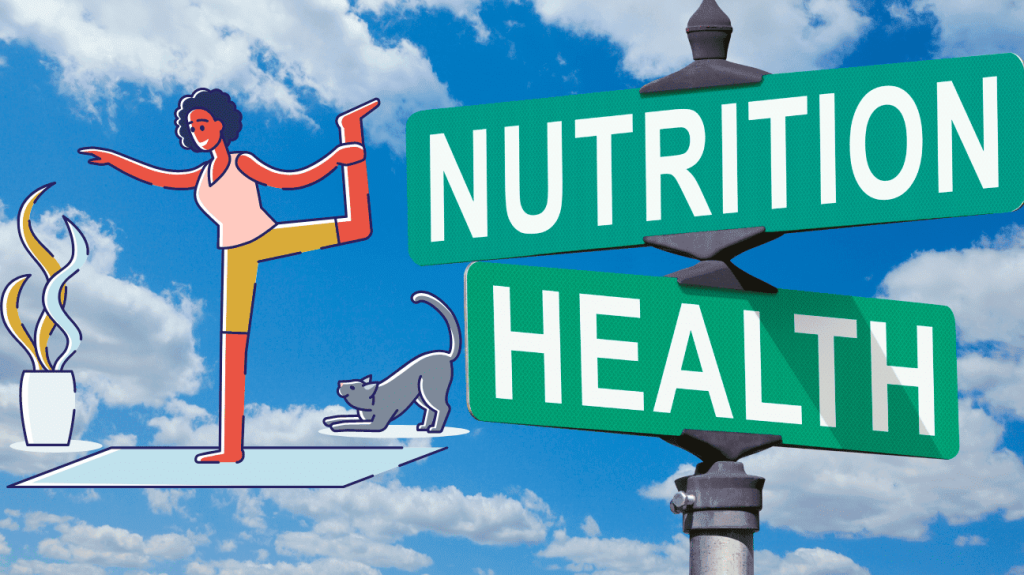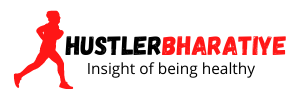what is the role of nutrition in supporting HIIT for weight loss?
When it comes to weight loss, exercise, and nutrition are equally important.
While HIIT (High-Intensity Interval Training) is a highly effective workout for burning fat and building muscle, the role of nutrition in supporting HIIT cannot be overlooked.
In this article, we’ll explore-
- the importance of nutrition in HIIT training,
- the best diet for HIIT, and
- nutrition tips for before, during, and after your HIIT workout.
Nutrition for HIIT Training

When it comes to achieving your fitness goals, it’s essential to focus on both exercise and nutrition.
High-intensity interval training (HIIT) requires fueling your body with the right nutrients to support your body’s demands during the workout and help with recovery afterward.
- One of the most important aspects of nutrition for HIIT is maintaining a healthy and balanced diet.
- Your body needs a variety of nutrients, including protein, carbohydrates, healthy fats, vitamins, and minerals, to function correctly.
- Eating a diet rich in whole foods, such as fruits, vegetables, lean protein, and healthy fats, will provide the fuel and nourishment needed for optimal performance during HIIT workouts.
- Exercises that require a high level of energy are largely powered by carbohydrates.
- The body breaks down carbohydrates into glucose, which is used to fuel your muscles during your workout.
- Eating the right carbohydrates before exercise can improve your performance and prevent fatigue during your HIIT workouts.
- Good pre-workout carbohydrate choices include fruits, vegetables, whole grains, and low-fat dairy products.
- Related: Hiit for weight loss!
Importance of Protein
Protein is also essential for HIIT training as it helps repair and rebuild muscles damaged during exercise.
Eating a protein-rich meal or snack before or after your workout can help promote muscle growth and recovery.
Good protein sources include lean meats, poultry, fish, beans, legumes, nuts, and seeds.
Proper Fluids
Staying hydrated is also crucial for HIIT training.
Drinking enough water before, during, and after your workout can help regulate your body temperature, prevent dehydration, and improve performance.
It’s recommended to drink at least eight glasses of water per day and more during your workout sessions.
- Related: Hiit workout for obese beginners
In summary, maintaining a healthy and balanced diet is crucial for HIIT training. Eating the right carbohydrates, proteins, and staying hydrated will help support your body's demands during the workout and help with recovery afterward.
The Role of Nutrition in Maintaining Health
While HIIT training can be highly effective for weight loss, it’s essential to ensure that you’re maintaining overall health as well.
One of the most critical components of maintaining good health is proper nutrition.
The role of nutrition in supporting HIIT for weight loss plays a vital role in supporting your body during HIIT training.
It provides the fuel and energy needed to complete the intense exercises, supports muscle growth and recovery, and ensures that your body has the necessary nutrients to function optimally.
A well-rounded diet should include a balance of carbohydrates, proteins, and healthy fats.
These macronutrients are essential for supporting various bodily functions, including energy production, muscle growth and repair, and overall health.
In addition to macronutrients, it’s important to ensure that you’re getting adequate amounts of micronutrients such as vitamins and minerals.
These nutrients play a crucial role in supporting your immune system, maintaining healthy bones, and preventing chronic disease.
A report published in PubMed Central states that high-intensity interval training promotes health-supporting dietary foods and helps in maintaining weight.
The key to maintaining good health while engaged in HIIT training is eating a balanced, nutritious diet. In order to support your HIIT training goals, you should consume whole, unprocessed foods and plenty of fruits and vegetables.
Fueling Your Body for HIIT
To perform a high-intensity interval training (HIIT) workout effectively, you need to fuel your body with the right nutrients.
Consuming a balanced and nutrient-rich diet is crucial for HIIT, as it helps to provide energy, support muscle repair and recovery, and enhance overall performance.
Here are some nutrition tips to help you fuel your body before, during, and after HIIT workouts.
Before workout
Before a HIIT workout, it is essential to eat a meal that is rich in carbohydrates and protein to provide energy and support muscle recovery.
Carbohydrates are the primary fuel source for high-intensity exercises like HIIT, and they help to provide the energy required for intense movements.
There are a variety of good sources of carbohydrates, including whole grains, fruits, and vegetables.
Additionally, protein-rich foods like chicken, fish, and beans help to support muscle repair and recovery.
- Related: HIIT for beginners weight loss!
During workout
During a HIIT workout, your body requires energy to perform at its best.
Consuming a carbohydrate-rich drink or snack during your workout can help to maintain your energy levels and delay the onset of fatigue.
Good sources of carbohydrates during a HIIT workout include sports drinks, energy gels, and fruits.
After workout
After a HIIT workout, your body needs to replenish the nutrients lost during the exercise.
Consuming a protein-rich meal or snack within 30 minutes of your workout can help to support muscle repair and recovery.
In addition to chicken and fish, eggs and whey protein are good sources of protein.
- Related: hiit or cardio for fat loss?
For HIIT workouts, your body needs the right nutrients. The right diet can help you perform better, recover faster, and lose weight. For optimal performance, hydrate well before, during, and after your workout.
Nutrition Tips During Workout
During HIIT workouts, it’s important to maintain energy levels and stay hydrated.
Here are some nutrition tips to keep in mind during your workout:
- Hydrate with water: Drinking water before, during, and after your workout can help prevent dehydration and maintain your energy levels.
- Consume a small snack: If you’re doing a longer HIIT workout, consider having a small snack like a banana or a handful of nuts to provide your body with a quick burst of energy.
- Sip on a sports drink: If you’re doing a particularly intense workout or sweating heavily, you may benefit from drinking a sports drink that contains electrolytes to replace what you lose through sweat.
- Avoid heavy meals: Eating a heavy meal before a workout can leave you feeling sluggish and may cause digestive discomfort. Stick to lighter meals or snacks before your workout.
- Keep it simple: During your workout, stick to simple carbohydrates like fruit or energy gels to provide your body with quick energy.
You must remember that everyone's nutritional needs are different. Find what works best for you by experimenting with different options.
HIIT Diet Plan for Weight Loss:
To support weight loss during HIIT training, it’s important to pay attention to both macronutrients (carbohydrates, protein, and fat) and micronutrients (vitamins and minerals).
A general recommendation is to aim for a balanced diet with 40% carbohydrates, 30% protein, and 30% fat.
It’s important to complement HIIT’s support for weight loss and the role of nutrition.
- Choose complex carbohydrates like brown rice, quinoa, and sweet potatoes over simple carbs like white bread and sugary drinks.
- Protein is important for muscle repair and growth. There are plenty of protein-rich food sources, including lean meats, fish, beans, and tofu.
- You can feel satisfied and full by eating healthy fats such as avocados, nuts, and olive oil.
- You should also consume plenty of fruit and vegetables since they contain micronutrients.
- A sample meal plan for a HIIT workout day might include oatmeal with fruit and nuts for breakfast, a turkey and avocado wrap for lunch, and grilled salmon with roasted veggies for dinner.
- Snacks can include things like Greek yogurt with berries, carrots, and hummus, or an apple with almond butter.
Your diet should be customized using your body's signals. Incorporate the right nutrients into your HIIT workout to maximize results. Find a nutritionist or dietitian to help you plan your meals.
The role of nutrition in supporting HIIT for weight loss: FAQs
1. What diet works best with HIIT?
A balanced diet consisting of lean proteins, complex carbs, and healthy fats is best for HIIT workouts.
2. Which diet burns more fat with HIIT?
A diet that is low in carbs and high in protein and healthy fats is known to burn more fat during HIIT workouts.
3. Is dieting sufficient with HIIT workouts for losing fat?
While dieting plays a crucial role in weight loss, HIIT workouts can help you burn more calories, build muscle, and lose fat more effectively.
4. What vegetables help in losing fat?
Vegetables like broccoli, spinach, kale, cabbage, and peppers are low in calories and high in fiber, making them excellent choices for weight loss.
5. What is the best low-carb diet for HIIT workouts?
The best low-carb diets for HIIT workouts include the ketogenic diet and the Atkins diet, which are known to promote weight loss and fat burning.
Final thoughts
Hence, the role of nutrition in supporting HIIT for weight loss cannot be underestimated.
By fueling your body with the right macronutrients and micronutrients, you can improve your performance, increase your energy levels, and maximize your weight loss results.
It is crucial to consume enough carbohydrates for energy, adequate protein for muscle repair and growth, and drink enough water to stay hydrated throughout your workout.
You may also want to consider a meal plan that coordinates with your HIIT workout schedule.
Personal trainers and registered dietitians can help you plan nutrition and workouts.
Weight loss and fitness can be enhanced with the right nutrition and HIIT workout plan.
So, fuel your body right and HIIT it for better results!
Cheers!
